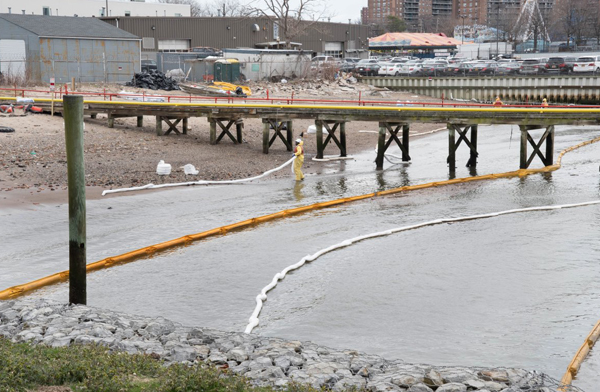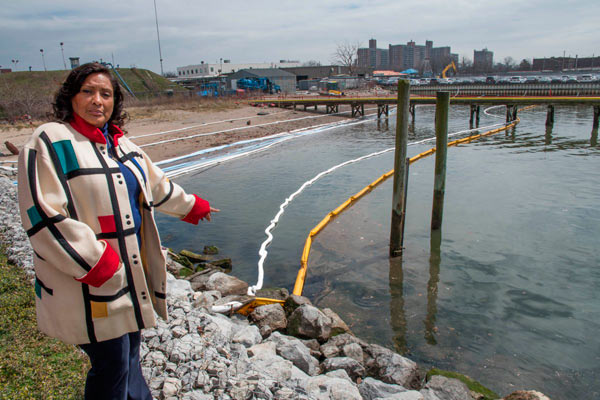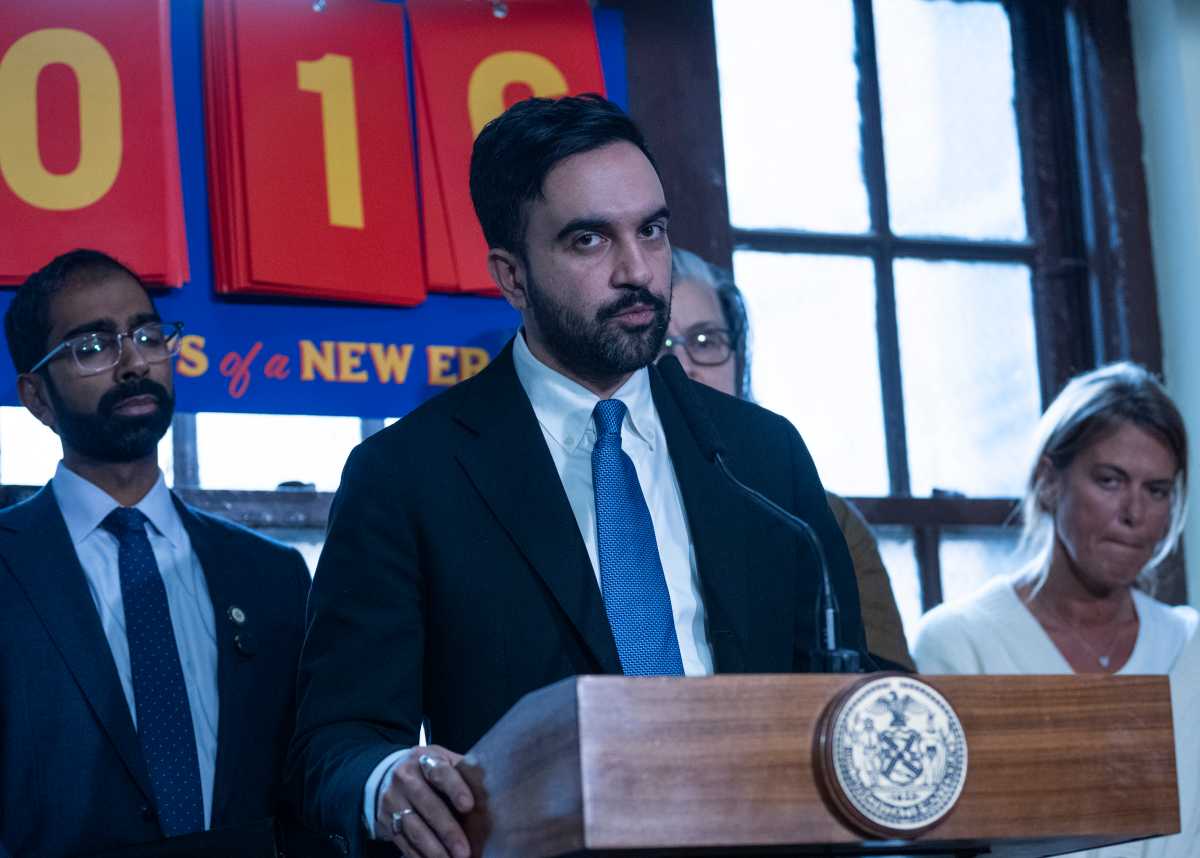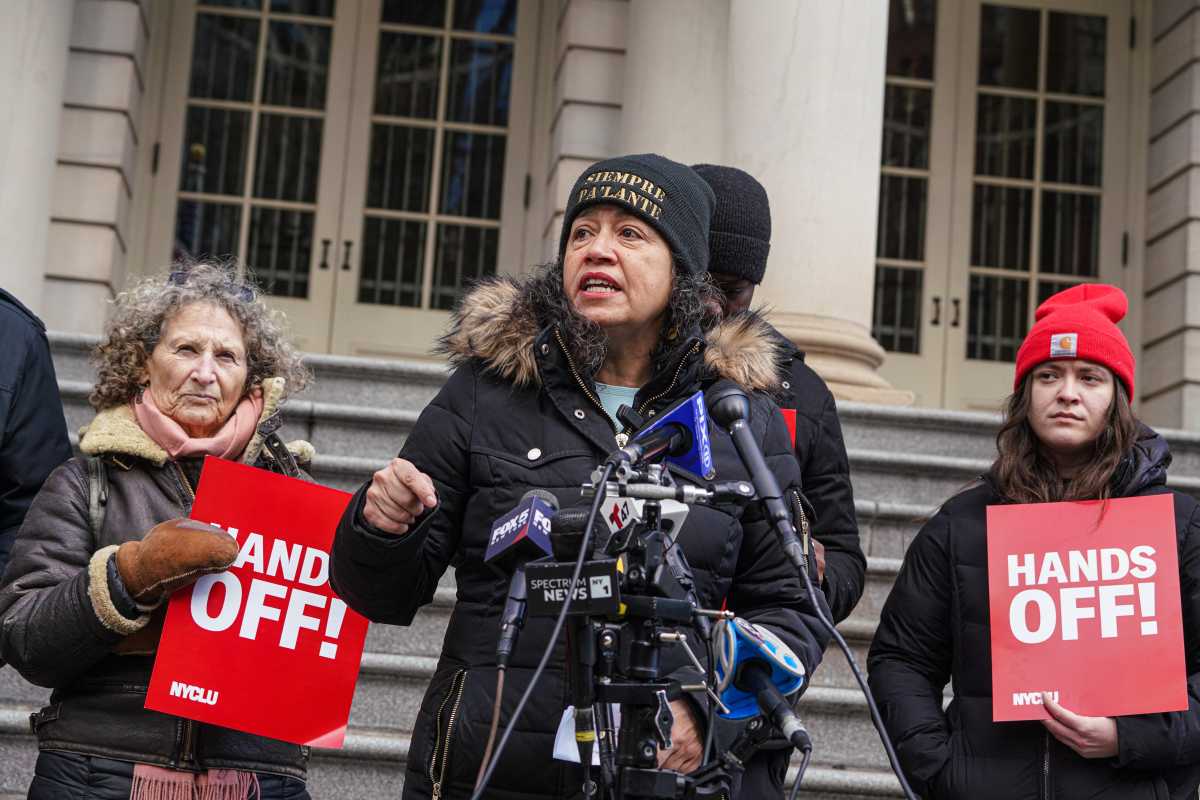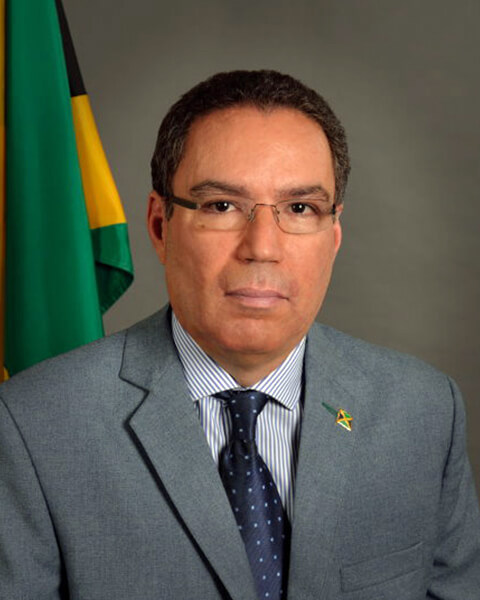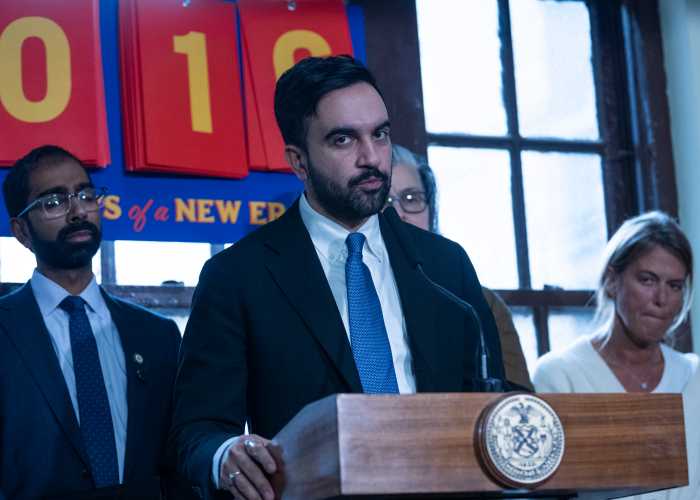So who is responsible to notify you when thousands of gallons of oil spill on your local shore? The answer may surprise you.
State and federal agencies and officials are passing the buck on whose job it is to warn those who fish and boat in Gravesend Bay that a local oil distributor spilled more than 27,000 gallons of fuel into the waterway on March 30. And more than a week after the accident, information is trickling in to residents as agencies tussle with the task.
Bayside Fuel Oil Depot Corporation duly reported the spill to the state Department of Environmental Conservation on March 30 at 4 am — within two hours after the spill, as required by U.S. law — but the Department of Environmental Conservation sat on the information for more than a week before notifying the mayor and Councilman Mark Treyger on April 7.
By then, however, Treyger (D–Coney Island) and other local pols had already heard about the spill — not from the state, but from neighborhood environmental advocates who were alerted to the spill by whistleblowers inside the Department of Environmental Conservation.
But a department spokeswoman said that it’s not the agency’s job to tell local officials and the public about incidents like the recent oil spill, and the department was just doing them a favor when it finally let them know about it more than a week later.
“While State Environmental Conservation Law does not require notification for fuel spills of this nature, following the March 30 spill at Bayside Oil Terminal, [Department of Environmental Conservation] went above the requirement and notified various local elected officials multiple times to inform them of the state’s response and oversight of the incident,” said Erica Ringewald.
Not all local elected officials were being kept in the dark, however.
Rep. Dan Donovan (R–Bay Ridge) got a head’s up about the spill from the federal Environmental Protection Agency the day it happened.
But because the notice was designated “For Official Use Only,” it wasn’t Donovan’s job either to let his constituents in on the news, according to his director of communications.
“It’s not our role, and it’d be improper for us to tell others what the agency feels is not ready to be released publicly,” said Patrick Ryan, contending the notice was intended for internal communication and not for public release. “The expectation that a federal representative be responsible for the notification process of a state agency is just misguided.”
Donovan was exclusively notified by the Environmental Protection Agency because he is the local congressman, according to a spokesman for the agency. But that’s the only person the agency planned to tell, because it’s not the Environmental Protection Agency’s job either to alert the public when thousands of gallons of toxic fuel spill into a public waterway, he said.
That jobs falls to the state and the U.S. Coast Guard, said the Environmental Protection Agency spokesman.
“[Environmental Protection Agency] did not perform notifications for this response,” said agency spokesman Elias Rodriguez. “[The state Department of Environmental Conservation] and the [U.S. Coast Guard] were the lead agencies. [The Environmental Protection Agency’s] role in this spill was to provide technical assistance in support of the [U.S. Coast Guard] and [state Department of Environmental Conservation].”
The Coast Guard could not be reached for comment.
In light of the local outrage over the spill and lack of communication, Donovan penned a letter to the Environmental Protection Agency’s regional office expressing the community’s concerns and looking for ways to improve the agency’s notification procedures.
“I write to inquire about the Environmental Protection Agency’s processes and protocols for public notifications of incidents like last week’s Gravesend oil spill,” Donovan wrote in a letter to the agency. “Local stakeholders have expressed concerns that the public did not receive timely information about the response and cleanup effort.”
But the number of agencies unwilling to step up to the plate and notify locals about such incidents is inexcusable, and points to a lack of respect for the area, said one local environmental advocate.
“It’s not even a common courtesy — when you see something say something,” said Pamela Pettyjohn. “Let people know, especially when it could result in an adverse reaction to people and the marine life. It’s certainly not my job to tell people, but I do it anyway, because I care about the people here.”
